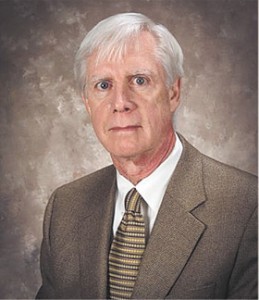
The October 13, 2012 Weekend Edition of The Wall Street Journal had an interesting article on the role of men as caregivers. While the text was tilted toward men, much of the information could also apply to women in the same role. I did not know that, while the traditional vision of a family member taking care of an elderly relative is a wife or daughter, 45% of Americans in that role are men, according to a Pew Research Center paper. One reason cited is the changing social norms, with hands-on fathers becoming more common. Also, the aging population in combination with the trend toward smaller families means less help from family members who are more geographically dispersed.
When a child who is employed has the responsibility to care for a parent or loved one, there can be financial, physical and emotional stress. According to the article, lost wages from caring from parents will cost the employee who is 50–plus an average of $89,000 in 2011 dollars over their lifetime. The lost wages also result in losses in social security benefits and possible pension benefits. Another problem is that men (the caregiver) are reluctant to seek help or even aware that they need help. If you fit in this category, here are some ideas included in this article. Go online to www.malecare-givercommunity.com, and you will find support from your comrades in similar situations as well as getting advice from professionals in the field. Benefitscheckup.org is a web site designed to help you find government and private programs that can help pay for prescription drugs, health care, in-home services and other needs. Also, don’t overlook our local resources. You may be able to go to www.eldercare.gov for help in finding support groups, adult day care, etc. Some large employers provide in-house assistance for caregivers. Check with your human resource directors. A geriatric care manager is typically a social worker or registered nurse that can help assess your loved one’s needs and arrange in-home or facility care. Caremanager.org provides a directory, along with a list of questions to ask when hiring someone. I think this could be a very valuable service. Wartime veterans who served at least 90 days of active military service may qualify for the Department of Veterans Affairs’ “aid and attendance benefit.” It helps pay for long-term care for veterans and their spouses if they meet certain financial thresholds for medical and financial need. For information, call the VA or go to www.va.gov. One place to go that is not listed in the article is your church family. I would bet that someone in that group has had a similar experience as yours and could provide you with great advice and hopefully, prayer and companionship.
In the November, 2012 edition of Consumer Reports on Health, an article on “Care for the Caregiver” continues on this theme. It notes that with a parent, there is a natural progression, an expectation that they will die before you, so it is not as shocking when a parent needs care. However, when a spouse needs care, the role of caregiver may not be so easy to accept and adjust to. This is the person who you are in love with, had hopes and dreams with and when these connections are disrupted by illness or disability, roles may shift and problems develop. Here is some of the advice provided in this essay. Communication is important. It should not be adversarial. It important to speak your mind, but it needs to be done in the right way. Be clear and effective. For example, say, “I would like to talk,” instead of, “We need to talk.” Be specific. Say, “I would like to talk about your care and maybe we could do this right after lunch”. Avoid doing things for your ill spouse that they can do for themselves. Caregivers who take on too many roles often experience increased levels of stress and anger or resentment toward the situation or patient. Not good. The less you enable the other person, the more time you have to take care of yourself. Better. Realize that a caregiver does not have to do it all alone. There is help available. Trained nurses can teach you how to lift your spouse so that you do not hurt yourself. They may also be able to help you make the house more accident-proof. All of this is important, not only from a physical standpoint, but from a financial one also.
November is the month for Thanksgiving. From the Episcopal Book of Common Prayer, “Accept, O Lord, our thanks and praise for all that you have done for us. We thank you for the splendor of the whole creation, for the beauty of this world, and for the mystery of life. We thank you for the blessing of family and friends, and for the loving care which surrounds us on every side. We thank you for setting us at tasks which demand our best efforts, and for leading us to accomplishments which satisfy and delight us. We thank you also for those disappointments and failures that lead us to acknowledge our dependence on you alone. Grant us the gift of your Spirit, that we may know Christ and make him known; and through him, at all times and in all places, may give thanks to you in all things.”
Securities, insurance and investment advisory services offered through FSC Securities Corporation, member FINRA/SIPC and a registered investment advisor 3416 North Blvd, Alexandria, LA 71301, (318) 448-3201. The views expressed are not necessarily the opinion of FSC Securities Corporation.









